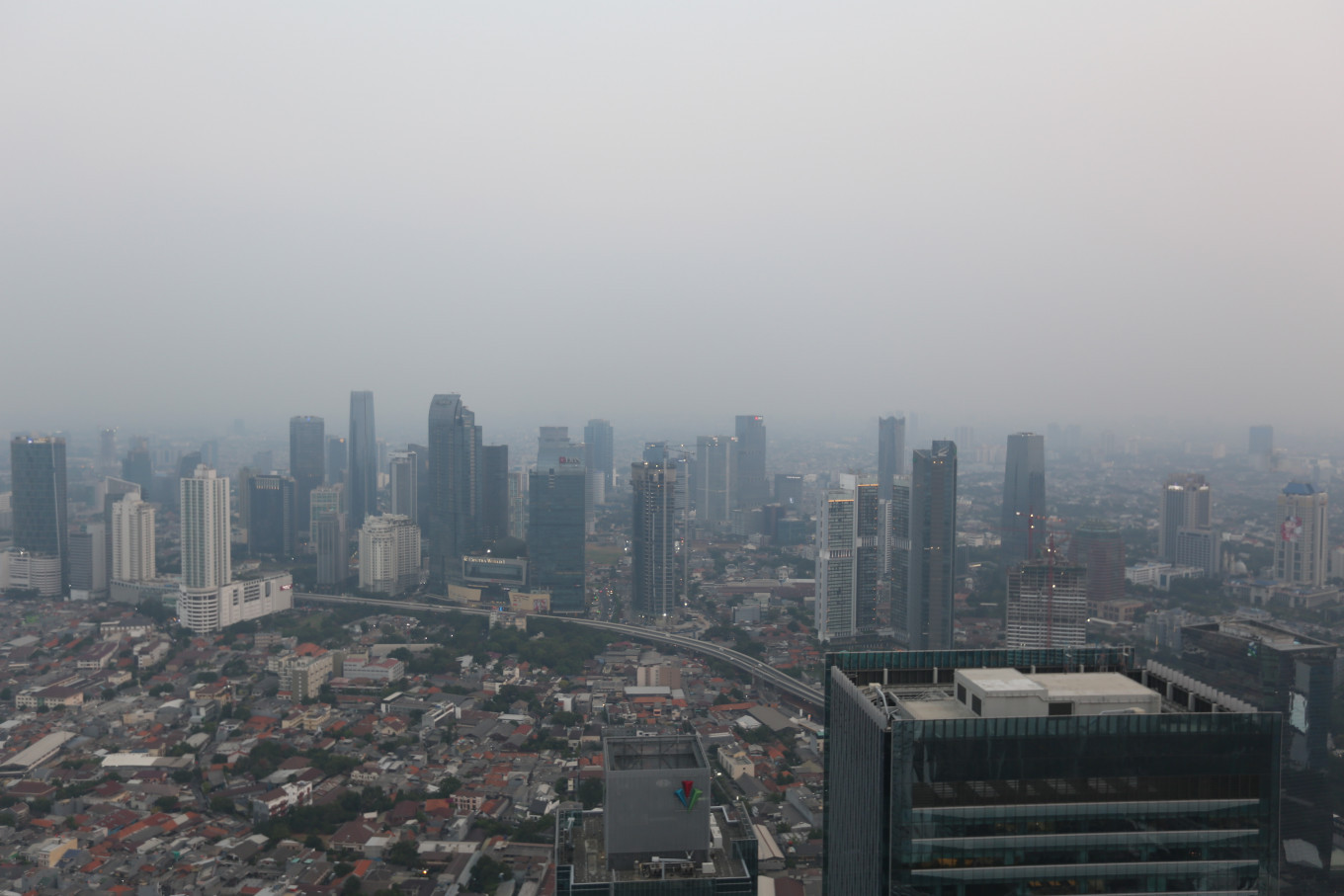Popular Reads
Top Results
Can't find what you're looking for?
View all search resultsPopular Reads
Top Results
Can't find what you're looking for?
View all search resultsRight to clean air
The Air Quality Life Index (AQLI) estimates that air pollution reduces life expectancy of each resident by almost 5 years.
Change text size
Gift Premium Articles
to Anyone
E
ven COVID-19, which has forced many Jakarta residents to stay at home, does not help clean the city’s skies. It’s safe to say that, during the pandemic, air pollution is less severe than it was before COVID-19 hit in March, but in general the city’s inhabitants have constantly breathed unhealthy air for decades.
The 11 million population of the capital city seem to have been accustomed to the unideal environment and opted to remain silent or at the most share their complaints on social media. The lack of awareness of citizens’ right to clean air, of course, has to stop, and the endeavor of the Coalition for Clean Air Initiative could be an eye-opener.
The Jakarta District Court is now hearing a lawsuit filed by the coalition on July 4 last year against seven state officials, including President Joko “Jokowi” Widodo, the health minister, the environment and forestry minister and Jakarta Governor Anies Baswedan, for not doing enough to address worsening air pollution, which, according to the Global Alliance on Health and Pollution, is responsible for 230,000 deaths in Indonesia annually. In Jakarta, the unhealthy air results in 12,000 fatalities according to another group’s estimate.
The Air Quality Life Index (AQLI) estimates that air pollution reduces life expectancy of each resident by almost 5 years. The World Health Organization says ambient air pollution causes stroke, heart disease, lung cancer and chronic respiratory diseases – all life-threatening illnesses.
Clearly air pollution is a threat to human life. The lawsuit is a reminder for the government of not only its responsibility to protect its people as stipulated in the Constitution, but also the gravity of the pollution problem, which is worsening from year to year.
There are many government policies to reduce air pollution, actually, ranging from mandatory emission checks for vehicles to the promotion of clean and renewable energy in place of fossil fuels. The Jakarta administration has also implemented traffic restrictions to help address the pollution.
But, as the coalition said in its lawsuit, the government policies were either outdated or below international standards. Even if the policies are in place, they are not necessarily enforceable, or they are enforced inconsistently. Moreover, the government has often sent confusing signals when it comes to carbon emissions, as happened when it boosted production of low-cost cars.
Jakarta is now home to 11.8 million motorized vehicles. The statistics already answer why smog blankets the city’s skies starting from as early as 6 a.m. The pollution gets worse when thousands more cars arrive from Jakarta’s satellites.
Greater Jakarta is going to grow in the coming years, even if the capital city is relocated to Kalimantan. It is estimated that, by the year 2030, Jakarta will become the world’s biggest megacity, with a population of 35.6 million, heightening air quality concerns in part due to the rising number of vehicles roaming Jakarta.
A court verdict in favor of the coalition would be a historic win for city residents, who are longing for healthy, fresh air. But even if the coalition does not win, its struggle has taught the government a valuable lesson.










